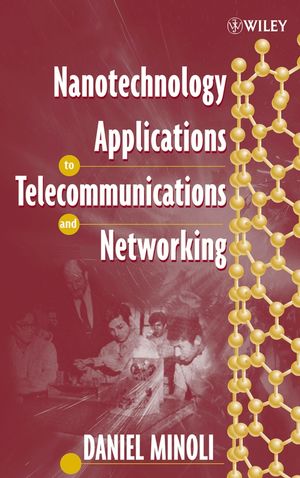Nanotechnology Applications to Telecommunications and NetworkingISBN: 978-0-471-71639-6
Hardcover
512 pages
October 2005
 |
||||||
Preface.
About the Author.
1. What is Nanotechnology and What Are the Business Application.
1.1 Introduction and Scope.
1.2 Present Course of Investigation.
2. Basic Nanotechnology Science-Physics.
2.1 Approach and Scope.
2.2 Basic Science.
2.3 Basic Properties of Conductors, Insulators, and Semiconductors.
2.4 Basic Properties of Silicon and Basic of Transistor Operations.
2.5 Conclusion.
3. Basic Nanotechnology Science-Chemistry.
3.1 Introduction and Background.
3.2 Basic Chemistry Concepts.
3.3 Conclusion.
4. Nanotubes, Nanomaterials, and Nanomaterial Processing.
4.1 Introduction.
4.2 Basic Nanostructures.
4.3 Manufacturing Techniques.
4.4 System Design.
4.5 Conclusion.
5. Nanophotonics.
5.1 Introduction and Background: A Plethora of Opportunities.
5.2 General Photonics Trends.
5.3 Basic Nanophotonics.
5.4 Photonic Crystals Crystals



